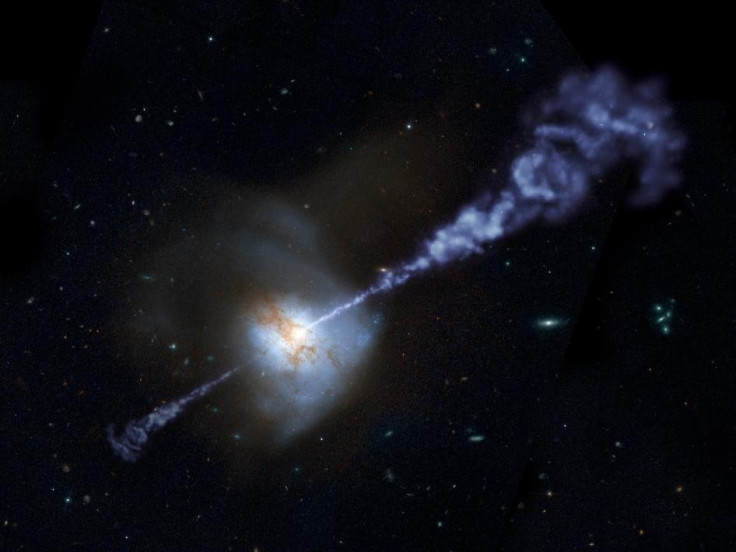Black Holes Can Suppress Galactic Star Formation, Says Nasa

Scientists have discovered that black holes can suppress galactic star formation.
Using the Herschel Space Observatory, an international team of scientists has discovered that the black holes start suppressing galactic star formation when the galaxy is at half of its current age.
Scientists also found that galaxies with the most powerful, active black holes at their cores produce fewer stars than galaxies with less active black holes.
"We want to know how star formation and black hole activity are linked," said Mathew Page, scientist at the University College London, in a statement. "The two processes increase together up to a point, but the most energetic black holes appear to turn off star formation."
Scientists discovered this when they were analysing Herschel data. They found that eight to 12 billion years ago, galaxies were forming stars 10 times more rapidly than they are today on average.
The study also revealed that many of these galaxies were incredibly bright earlier. They found that some galaxies were 1,000 times brighter than our Milky Way galaxy.
The Supermassive black holes are the largest types of black hole in a galaxy. Supermassive black holes, weighing as much as millions of suns, are believed to reside in the hearts of all large galaxies. When gas falls upon these clack holes, the material is accelerated and heated around the black hole, releasing great torrents of energy. Earlier in the history of the universe, these giant, luminous black holes, called active galactic nuclei, were often much brighter and more energetic. Star formation was also livelier back then.
Now, the scientists have found that active black holes can squash star formation. They found that the black hole that consumed so much gas started to spew out radiation into the galaxy that prevented raw material from coalescing into new stars.
"Now that we see the relationship between active supermassive black holes and star formation, we want to know more about how this process works," said Bill Danchi, Herschel programme scientist at Nasa headquarters in Washington. "Does star formation get disrupted from the beginning with the formation of the brightest galaxies of this type, or do all active black holes eventually shut off star formation, and energetic ones do this more quickly than less active ones?," he wondered.
© Copyright IBTimes 2025. All rights reserved.





















